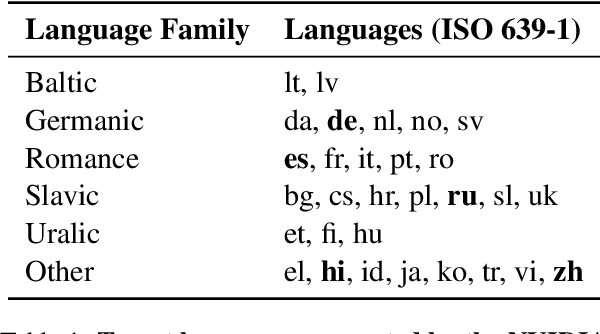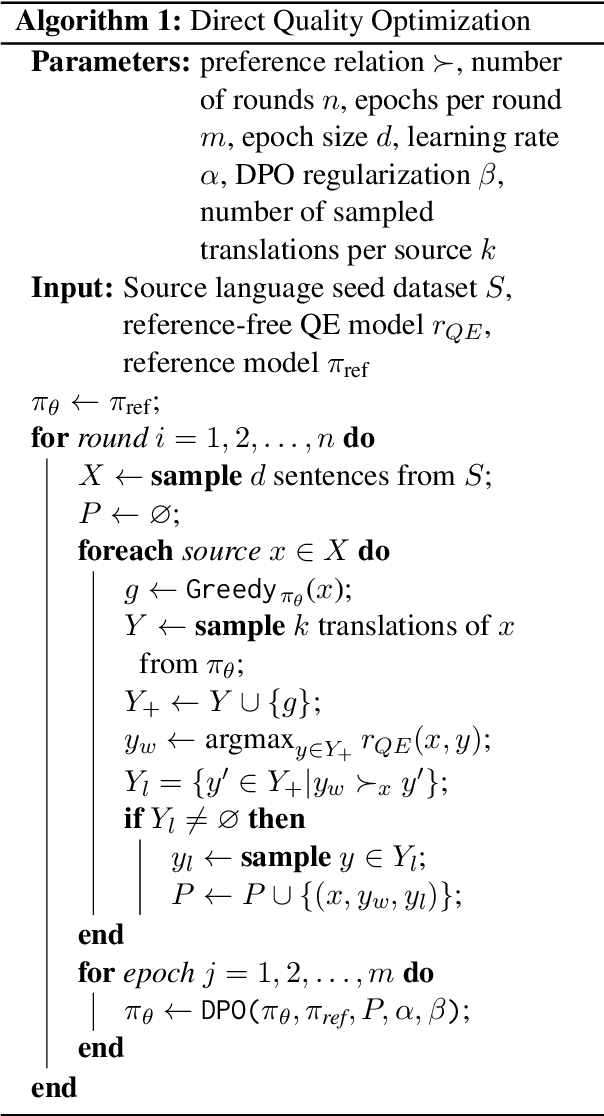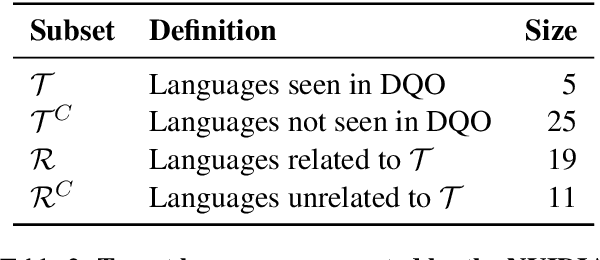Cross-lingual Human-Preference Alignment for Neural Machine Translation with Direct Quality Optimization
Paper and Code
Sep 26, 2024



Reinforcement Learning from Human Feedback (RLHF) and derivative techniques like Direct Preference Optimization (DPO) are task-alignment algorithms used to repurpose general, foundational models for specific tasks. We show that applying task-alignment to neural machine translation (NMT) addresses an existing task--data mismatch in NMT, leading to improvements across all languages of a multilingual model, even when task-alignment is only applied to a subset of those languages. We do so by introducing Direct Quality Optimization (DQO), a variant of DPO leveraging a pre-trained translation quality estimation model as a proxy for human preferences, and verify the improvements with both automatic metrics and human evaluation.
* 17 pages, 1 figure
 Add to Chrome
Add to Chrome Add to Firefox
Add to Firefox Add to Edge
Add to Edge